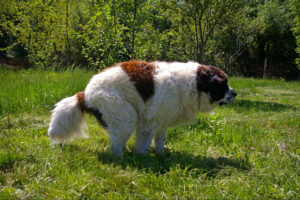As one in five people in Western countries are said to show symptoms of dog allergies, hypoallergenic dogs have become increasingly popular throughout years. Dog lovers who experience itchy eyes and watery noses have sought out breeds such as the bichon frise, labradoodle, and poodle that are said to produce less dander and therefore make good pets for allergy sufferers.
Hypoallergenic Dogs May Not Be Allergy Free
If you are allergic to dogs and thinking about getting a hypoallergenic breed, you might want to read this. A new study suggests that hypoallergenic dogs might not in fact be so allergy friendly.
The study, published in the American Journal of Rhinology and Allergy, claims that hypoallergenic dogs may be no different than regular dog breeds when it comes to triggering allergic responses. In fact, recent research has shown that these “hypoallergenic” dogs may have more allergy-causing protein in their fur than other breeds.
The recent experiment was conducted by Detroit’s Henry Ford Hospital, and was led by Christine Cole Johnson, chair of Henry Ford’s department of public health sciences. Johnson and her team selected 173 homes to include in the study.
The researchers collected dust samples from the floor and carpet of a baby’s room in each of these homes exactly one month after a newborn was brought home. All of the homes had one dog each and 60 different breeds were involved in the study overall, 11 of which were considered to be hypoallergenic dogs.
After all the samples were collected, the team tested them for the primary dog allergen known as “Canis familiaris” or “Can f 1.” The study revealed that there was no significant difference between allergen levels in dogs that were said to be hypoallergenic and the rest of the dog breeds. Also, the homes where the parents said that the dogs were not allowed in the baby’s room showed allergen levels that were slightly higher in hypoallergenic breeds than non-hypoallergenic breeds.
Johnson shared her team’s findings in a statement in a journal news release: “Based on previous allergy studies conducted here at Henry Ford, exposure to a dog early in life provides protection against dog allergy development. But the idea that you can buy a certain breed of dog and think it will cause less allergy problems for a person already dog-allergic is not borne out by our study.”
Although the researchers admit that their study may have had some limitations — the amount of time that a dog spent in the baby’s room was not recorded and the sample size was too small to make any generalizations about specific breeds — they maintain their stance that parents should not purchase a specific breed of dog based on hypoallergenic classifications.
While the study brings new opinions on hypoallergenic dogs to the table, many breeders are claiming that they’ve witnessed families with dog allergic members take home hypoallergenic breeds with positive results.
What are your experiences with owning a hypoallergenic breed? Do you agree with the above research?











